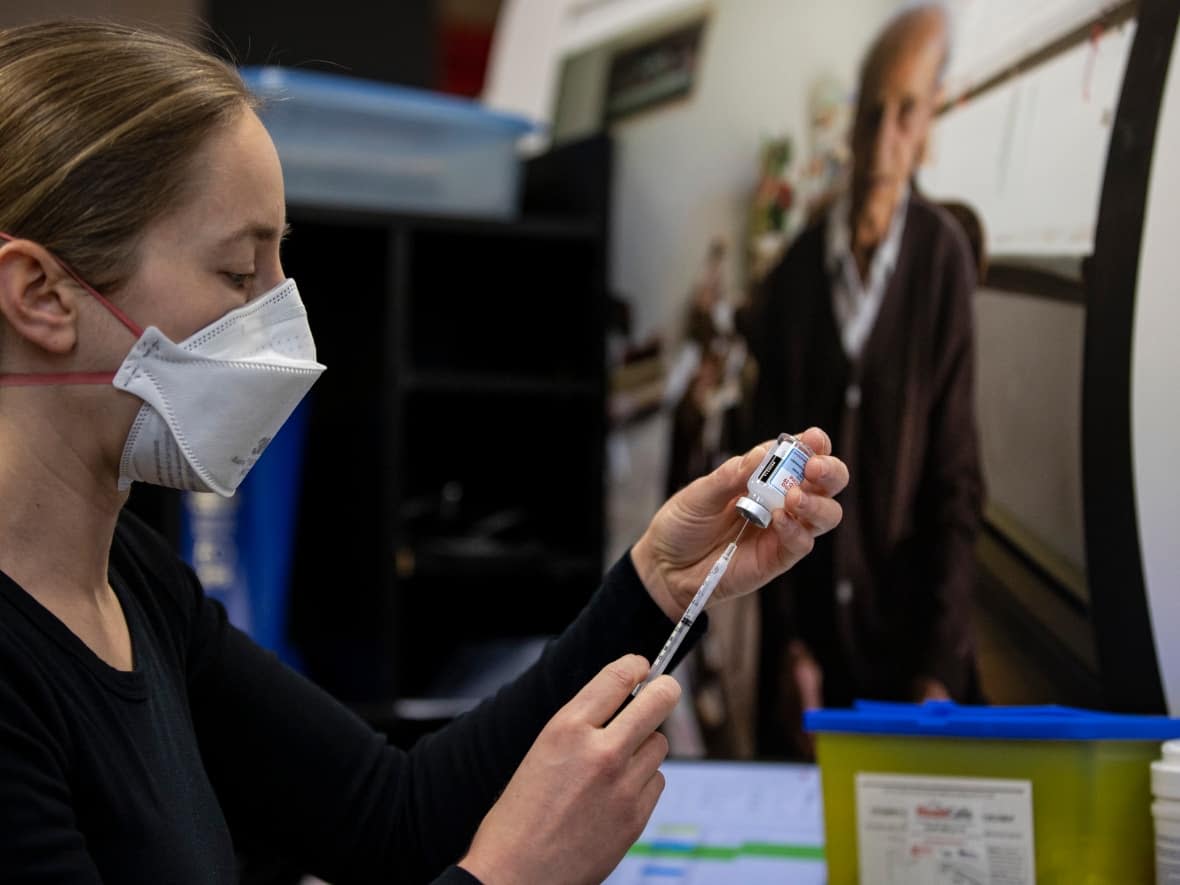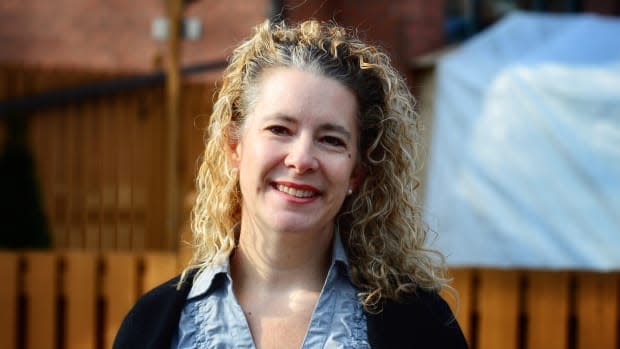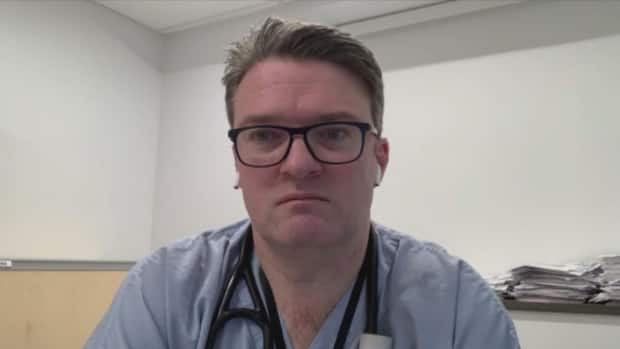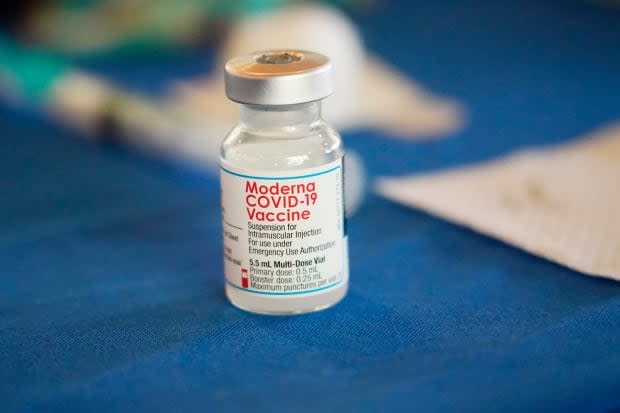Why uptake in COVID boosters is lagging in Quebec — and why that matters

When COVID-19 vaccinations were first made available in Quebec back in December 2020, thousands of Quebecers waited eagerly for a chance to roll up their sleeve and benefit from the protection against the virus the vaccine afforded.
But more than a year and a half later, as Quebec announced that a fifth dose will be made available to all adults by the end of August, experts say few people will be quick to line up for it.
In fact, provincial data shows a waning interest in all COVID-19 boosters over the past few months. According to Quebec's Health Ministry, only 56 per cent of the total eligible population has received a third shot — or their first booster dose. That number has remained unchanged for a month.
Only 19 per cent of the total eligible population has received a fourth dose — the vast majority of whom are aged 60 and over.
While federal and provincial health officials have said the best defence against a potential eighth wave and severe illness from the virus is getting up to date with COVID-19 doses, experts say there are several reasons why Quebecers are holding off on getting their shots.

The chair of behavioural medicine at the Université du Québec à Montréal says the provincial government's failure to be transparent and manage people's expectations is one of them.
"[The government] said, 'oh, you know, you're going to need two doses and that is the definition of fully vaccinated," said Kim Lavoie of the Health Ministry's messaging at the start of the pandemic.
While the government has gone on to urge people — not unreasonably, according to Lavoie — to get more doses, she says this has led to confusion and mistrust over the benefits they provide.
"I think that's what we're suffering from — from an impression that the government doesn't know what they're talking about because they keep making promises and changing the contract."
Lavoie says without concrete changes to the government's messaging, she worries Quebecers won't get their next booster dose — never mind their fifth.
Waiting for updated COVID booster
Dr. Matthew Oughton, an infectious disease specialist at Montreal's Jewish General Hospital, says this slow uptake of booster shots is being seen across Canada.
He expects this is due in part to people waiting to get Moderna's new bivalent vaccine, which was recently authorized for use in the U.K. It is specifically designed to protect against the highly contagious Omicron variant of COVID-19 and is currently awaiting approval in Canada. It's unknown when it would be available.
"I actually expect to see a big jump in demand once the bivalent boosters are actually available," he said, noting their stronger protection against the strain of virus that's currently circulating in the country.
But is the average person, with no risks of severe complications from COVID-19, better off getting some protection now or waiting an indefinite period of time for more protection later?

Prativa Baral, an epidemiologist, encourages people not to wait.
"Given that there's still high levels of COVID still circulating right now, the best vaccine is the vaccine that's available to you," she said.
Oughton says especially throughout the colder months, with influenza looming on the horizon, waiting for an upgraded dose could be risky.
"[The current booster] at least gives you protection against severe disease and would presumably lessen the burden that would come on health-care facilities if there's a huge and relatively sudden increase in disease across the population," he said.

Communicating value
Lavoie says now that millions of Quebecers have already gotten COVID-19 — some twice — people's willingness to get another dose partly depends on their risk perception.
"As risk perception goes down, the willingness to make the sacrifice necessary to get a vaccine goes down as well," she said.
The expert in behavioural medicine says the Quebec government therefore needs to do a better job of communicating what the added value of getting a booster dose is in a clear and accessible way.
She says changing people's behaviour boils down to three factors, which the government must work to address:
Awareness: The problem is that too few people are getting booster shots.
Motivation: This is how getting boosted will benefit you personally or align with your values.
Confidence: This is how accessible a booster dose is to you, in convenience, cost, ability to handle side effects, etc.
In a tweet Thursday, Health Minister Christian Dubé said that nearly 80,000 appointments for a booster dose have been booked since the announcement of the province's vaccination campaign earlier this week — the majority of which are among those aged 60 and older.
Vaccine-only strategy not the best method
On Wednesday, Quebec Public Health Director Dr. Luc Boileau said the fifth dose, "as well as the others that might follow," will be necessary to maintain immunity against COVID-19.
Baral says while vaccines remain an important tool in preventing severe infections, a vaccine-only strategy, as she's seen in many provinces, isn't necessarily the best method — especially as people fail to keep up with their boosters.
Baral says she would like to see the Quebec government impose additional measures to prevent the spread of COVID-19 as the return to school approaches.
"Whether it's ventilation in schools, better air quality, there are additional steps that we can certainly do to make sure that our 'living with this virus' strategy is a bit safer for everybody involved," she said.
In an interview on CBC Montreal's Daybreak, Boileau said he is not recommending bringing back any mandatory measures, such as the wearing of masks, particularly because there is no new variant detected in Quebec at this time.
He did say public health is discussing the possibility of bringing mobile vaccine clinics to schools in the next few weeks.
As for air quality in classrooms, he said those that are most at risk have been identified and equipped with CO2 readers.


